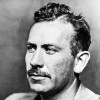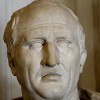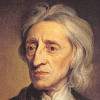“ every one is conscious of them in himself; and men’s words and actions will satisfy him that they are in others. ”
John Locke, An Essay Concerning Human Understanding (1689). copy citation
| Author | John Locke |
|---|---|
| Source | An Essay Concerning Human Understanding |
| Topic | action words |
| Date | 1689 |
| Language | English |
| Reference | |
| Note | |
| Weblink | http://www.gutenberg.org/files/10615/10615-h/10615-h.htm |
Context
“It being that term which, I think, serves best to stand for whatsoever is the OBJECT of the understanding when a man thinks, I have used it to express whatever is meant by PHANTASM, NOTION, SPECIES, or WHATEVER IT IS WHICH THE MIND CAN BE EMPLOYED ABOUT IN THINKING; and I could not avoid frequently using it. I presume it will be easily granted me, that there are such IDEAS in men’s minds: every one is conscious of them in himself; and men’s words and actions will satisfy him that they are in others.
Our first inquiry then shall be,—how they come into the mind.
BOOK I—NEITHER PRINCIPLES NOR IDEAS ARE INNATE
CHAPTER I.—NO INNATE SPECULATIVE PRINCIPLES.
1. The way shown how we come by any Knowledge, sufficient to prove it not innate.”
source



